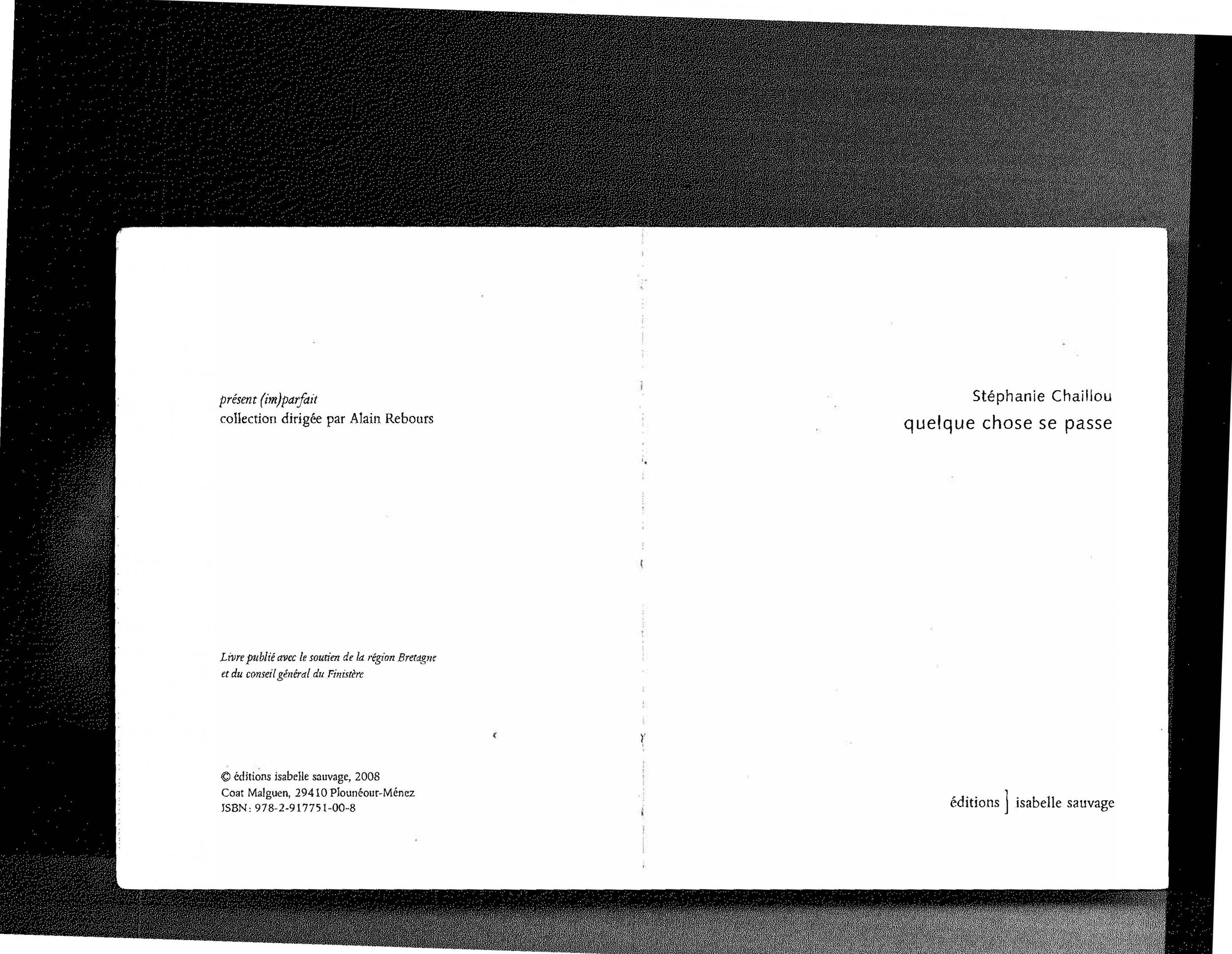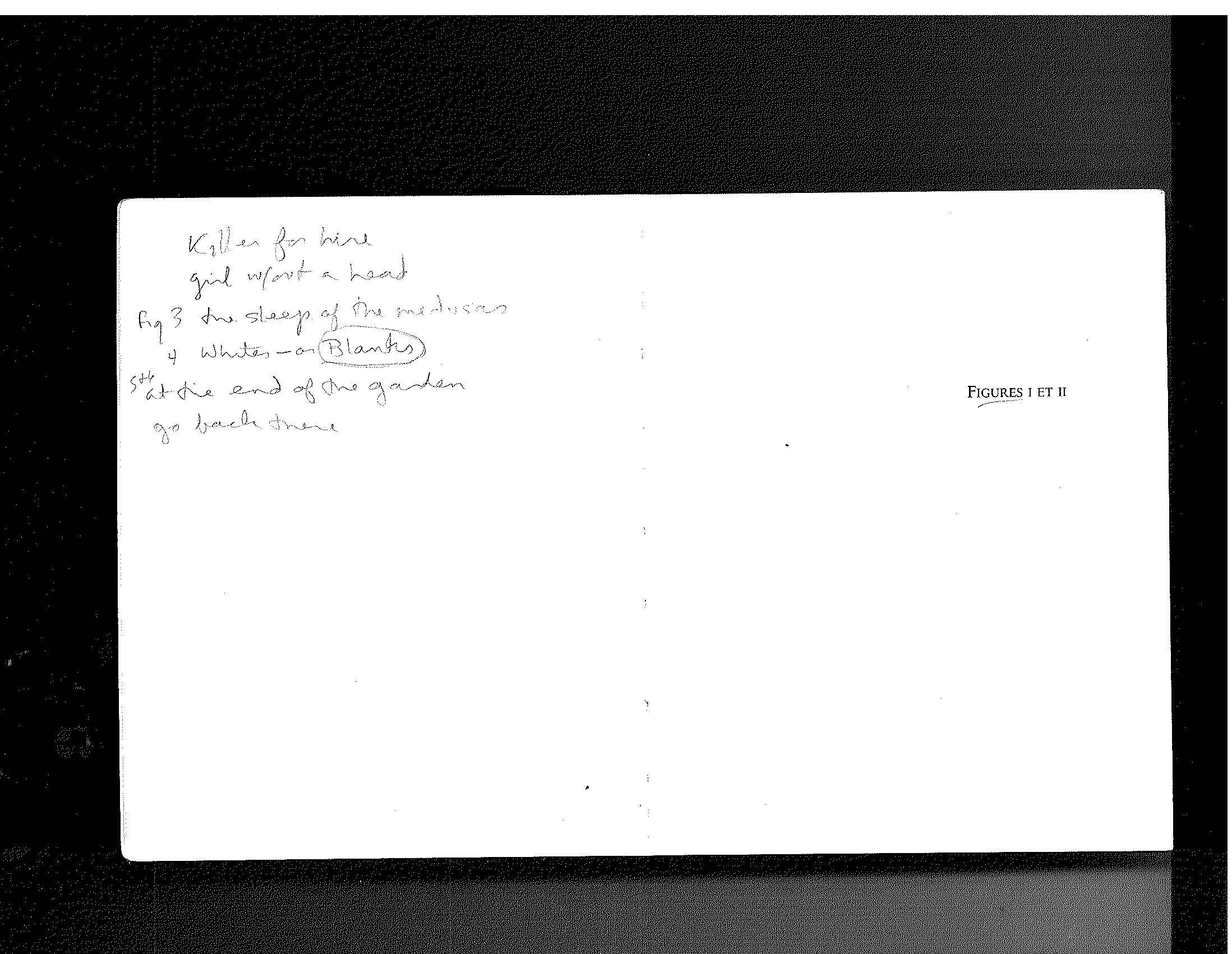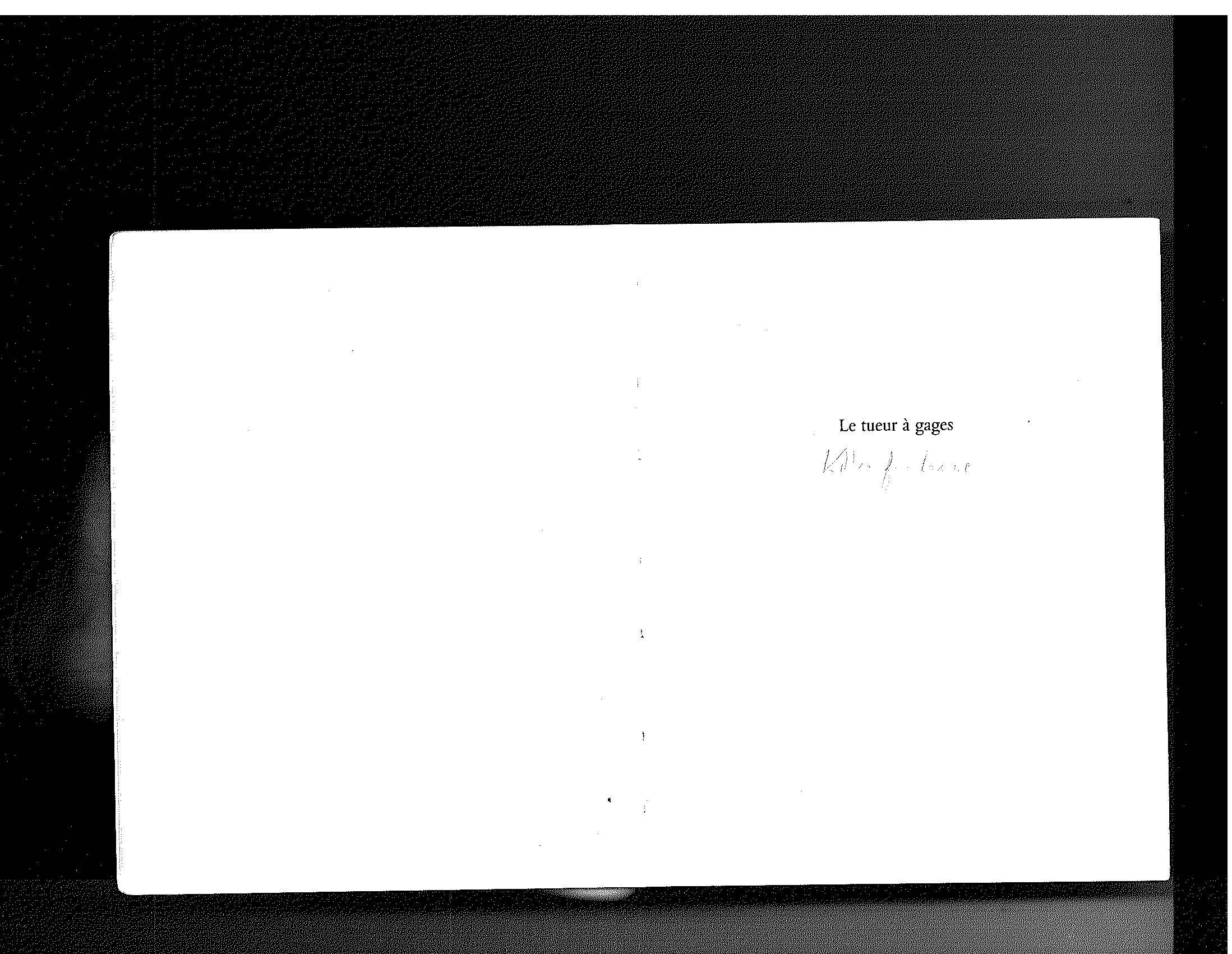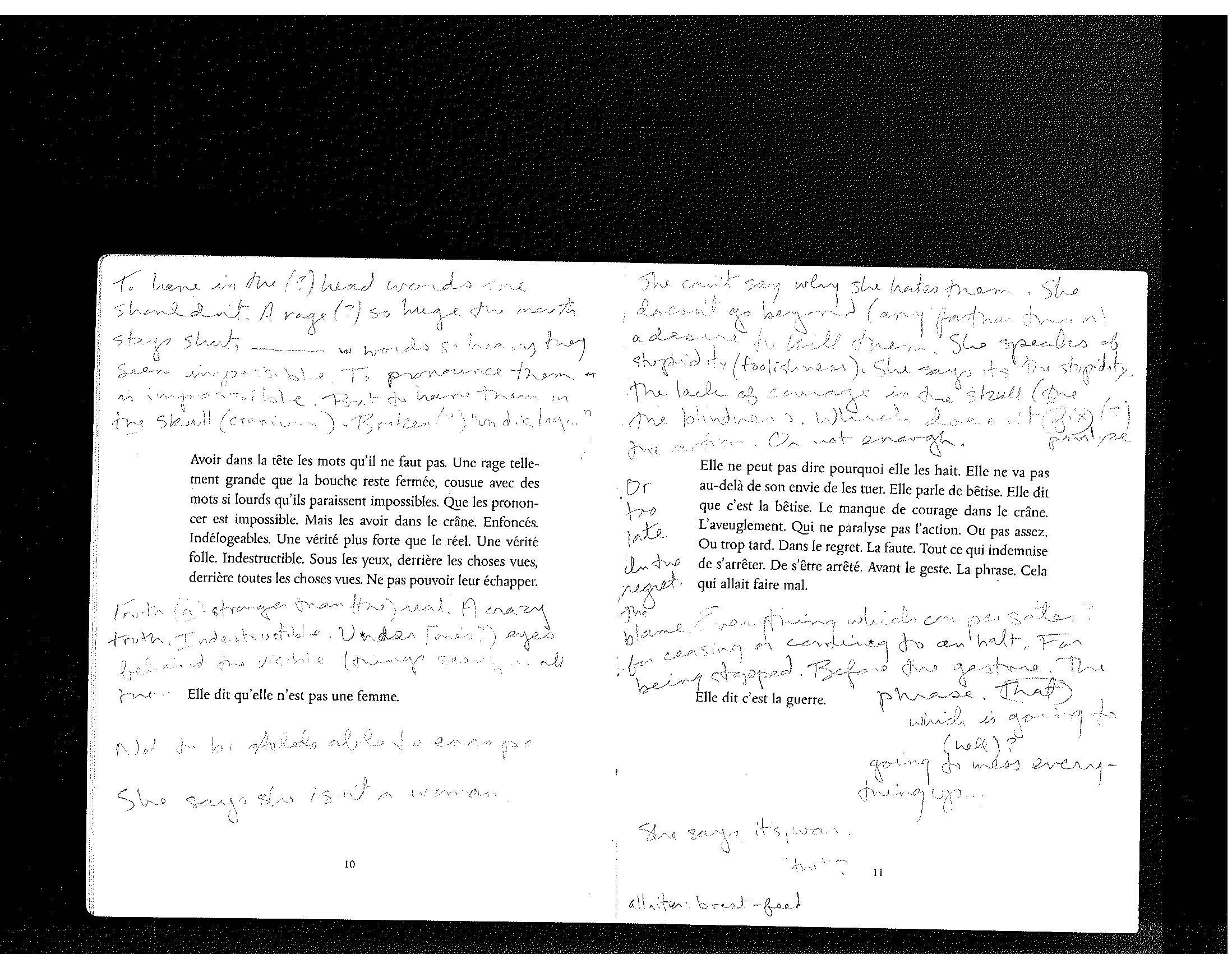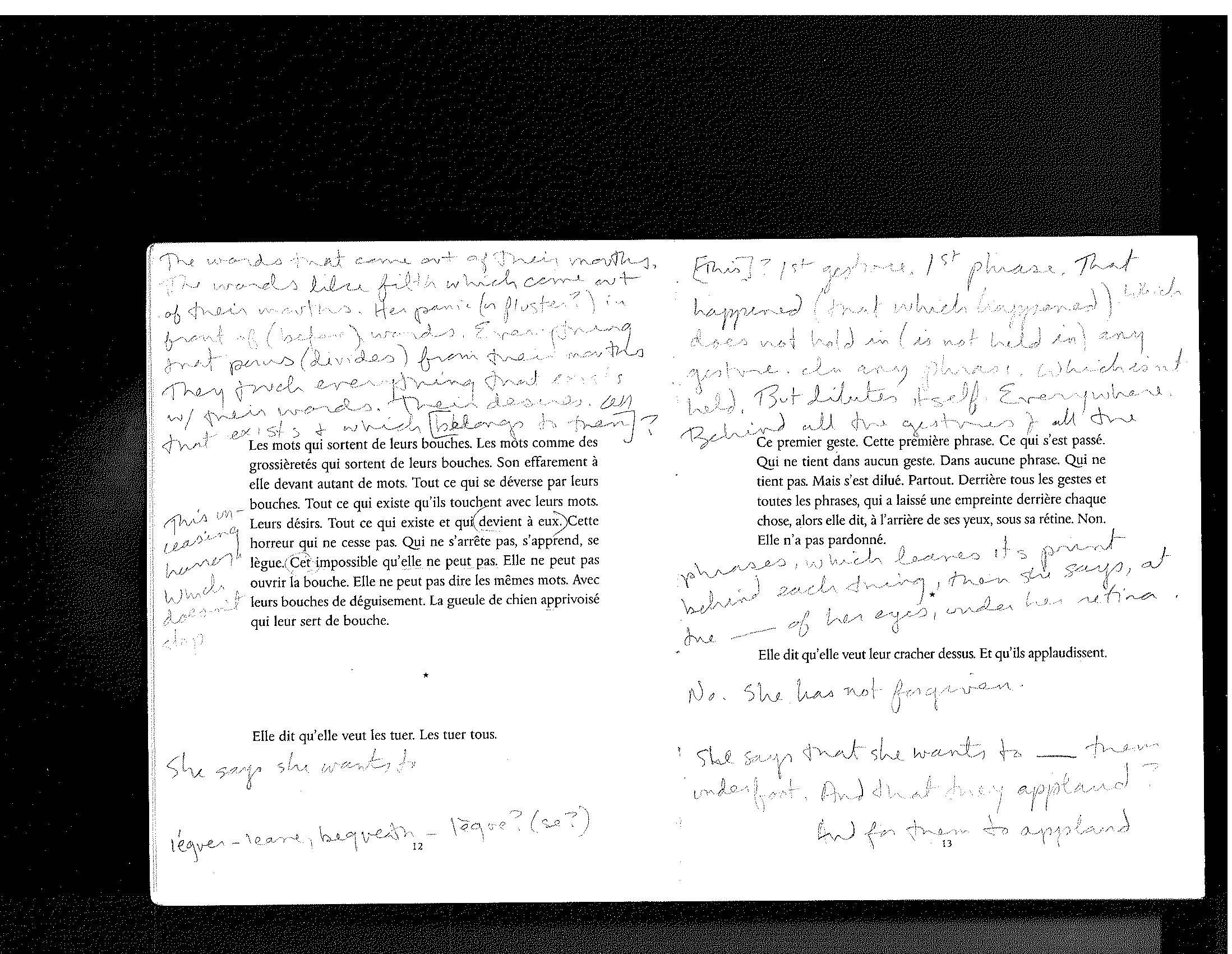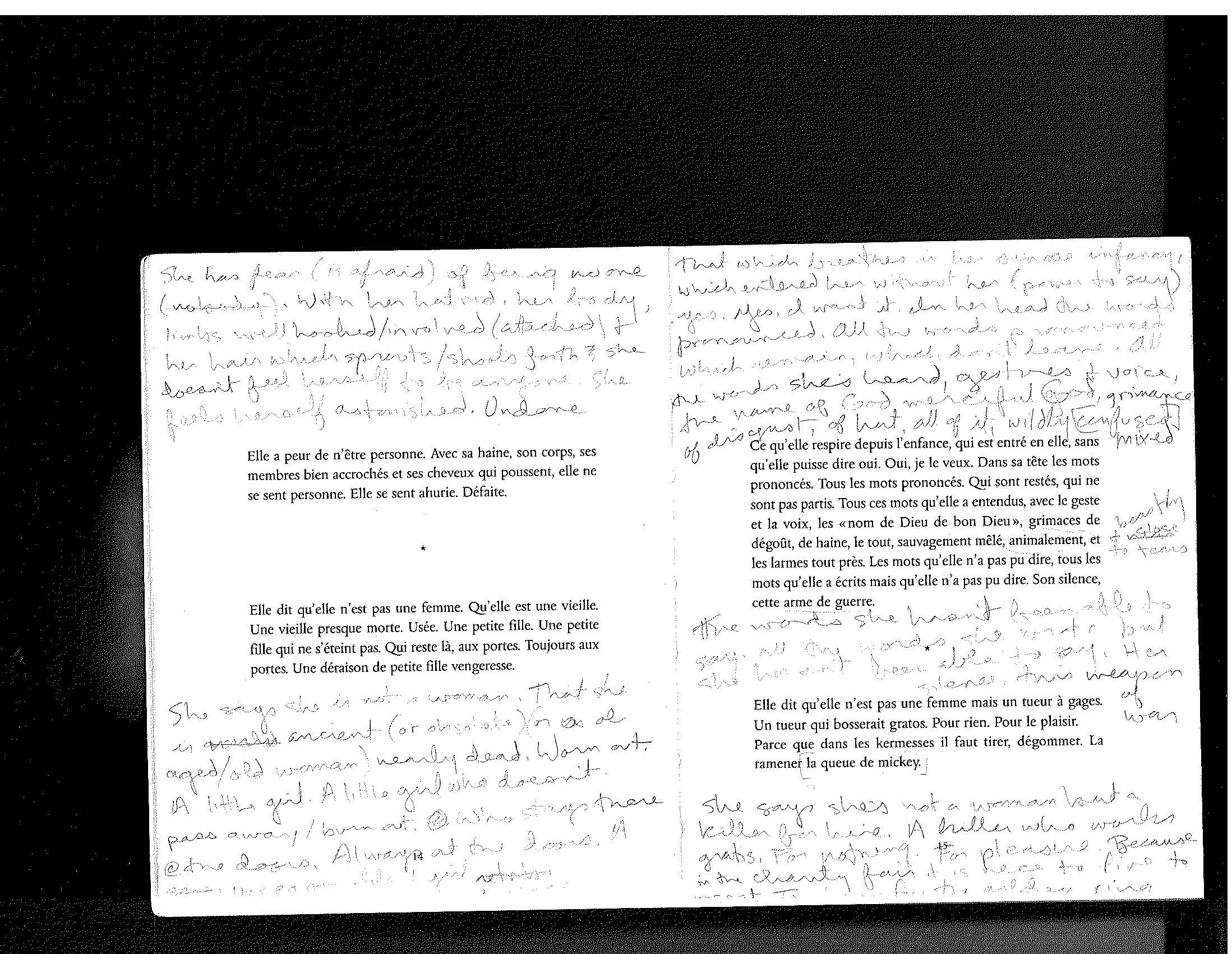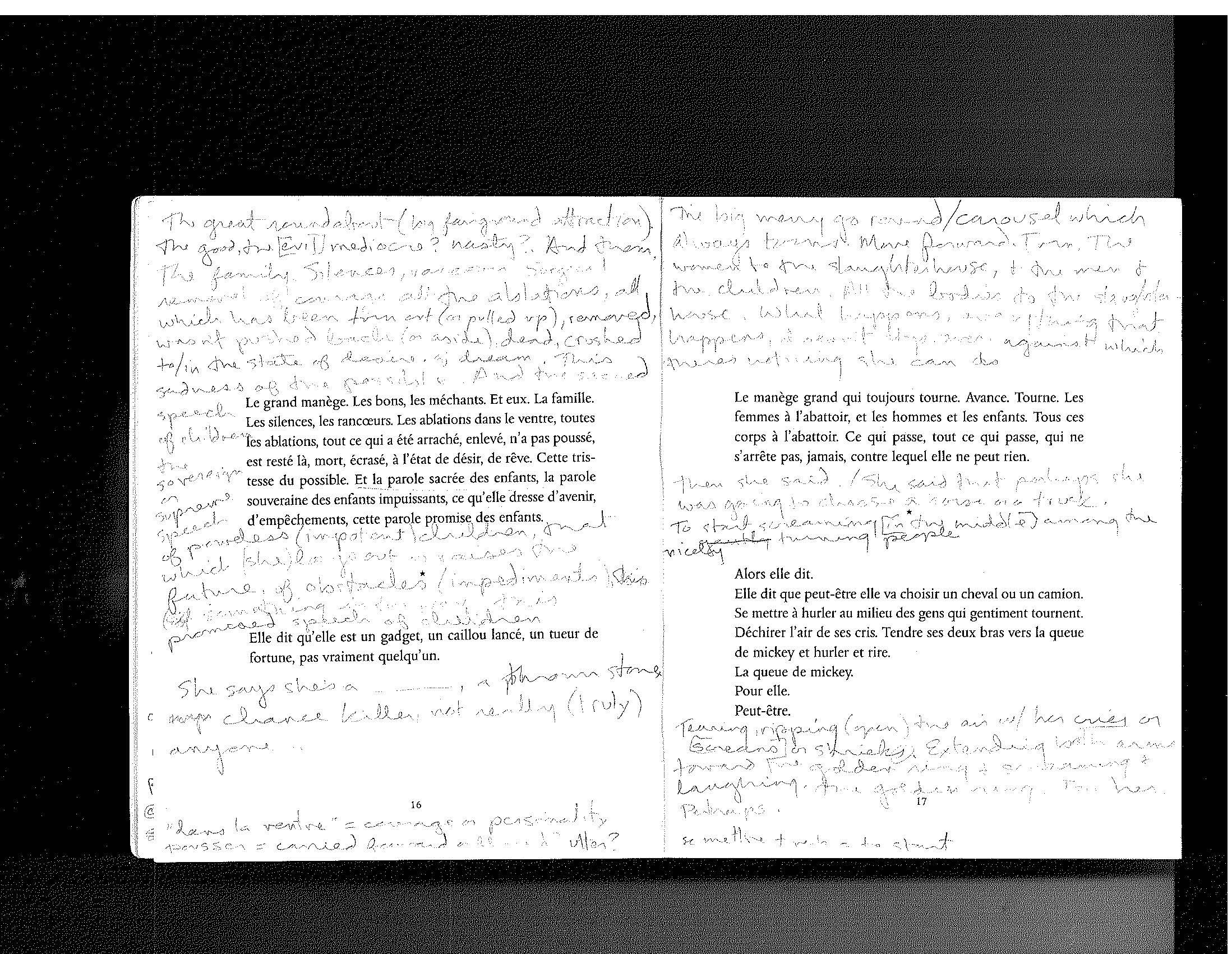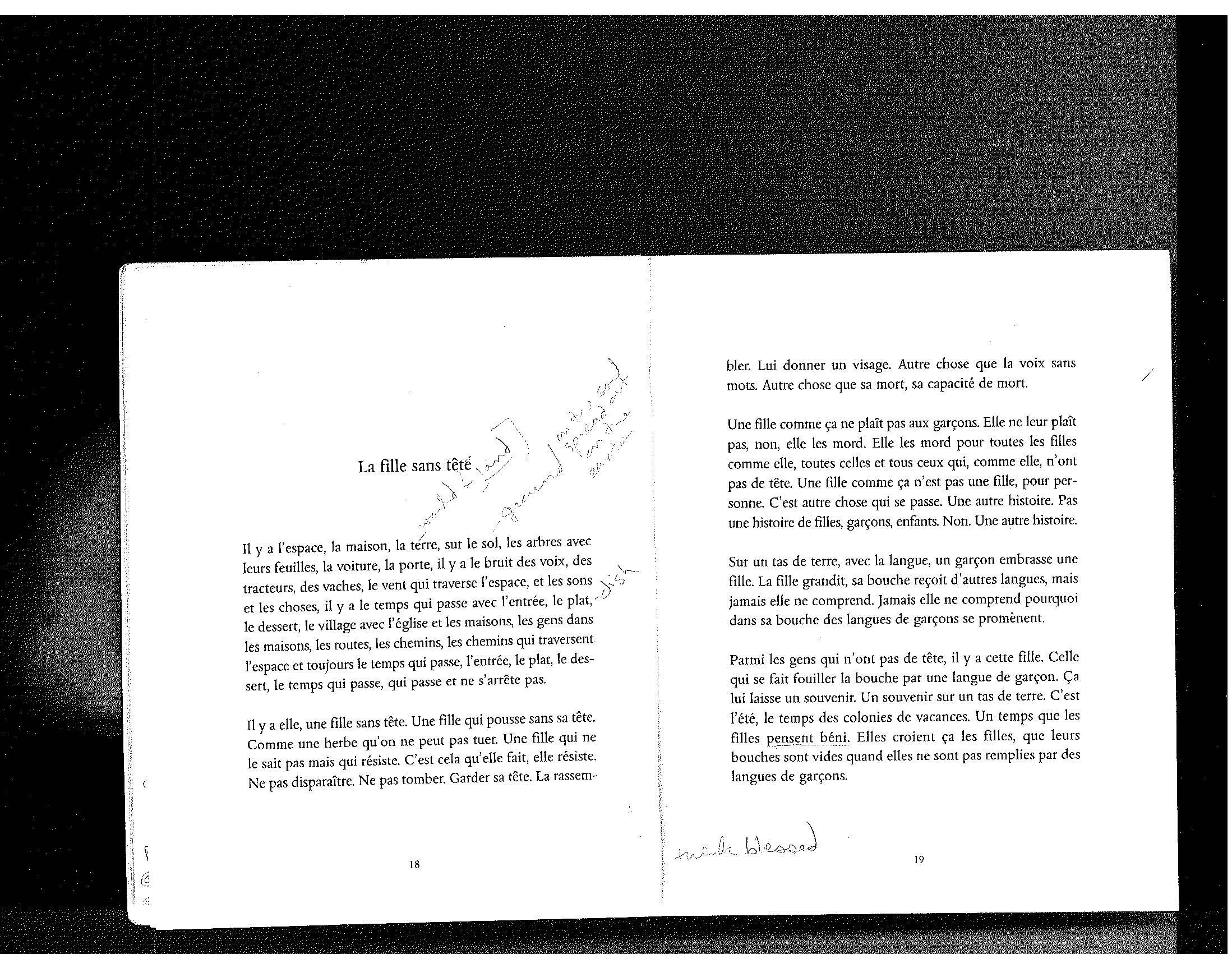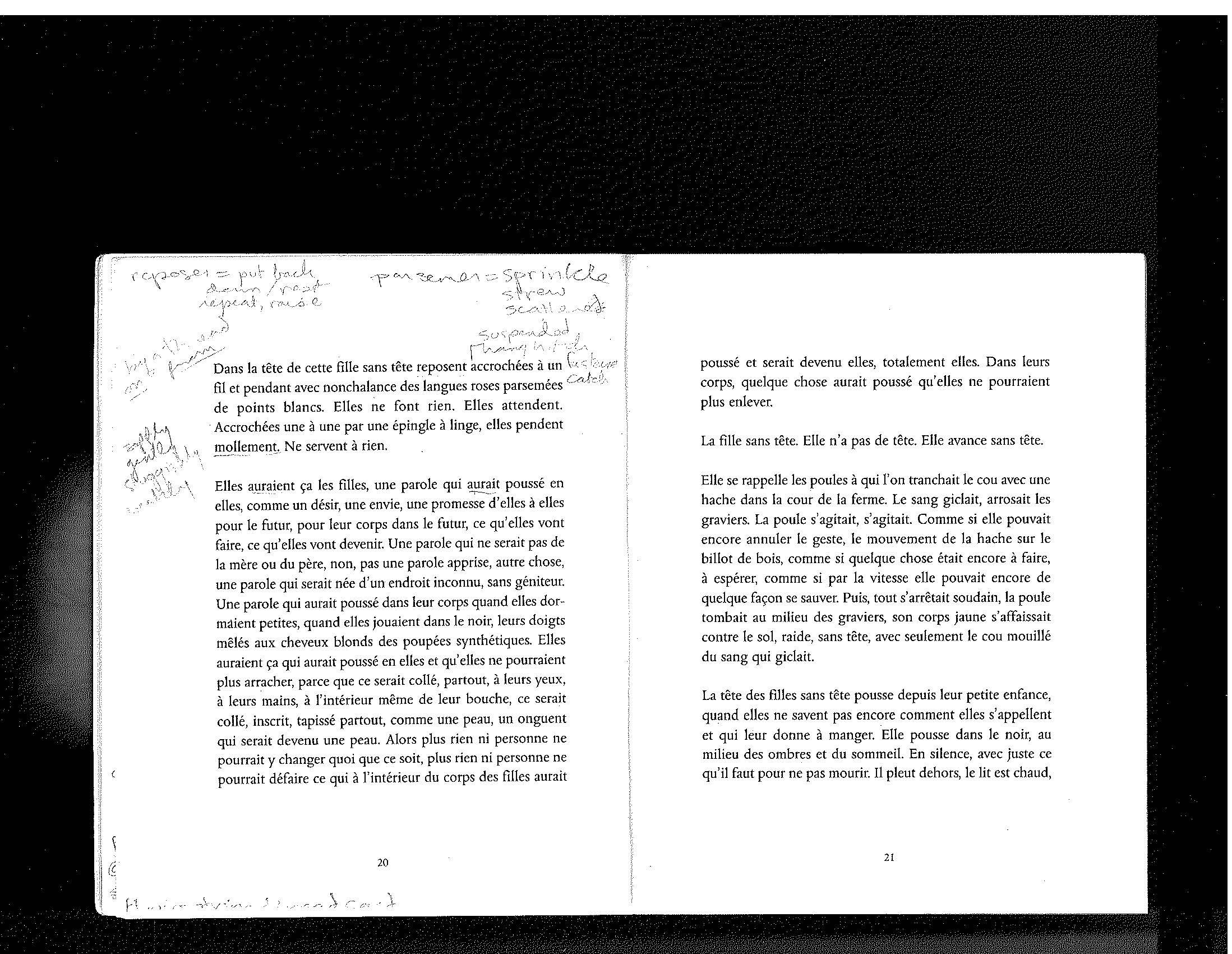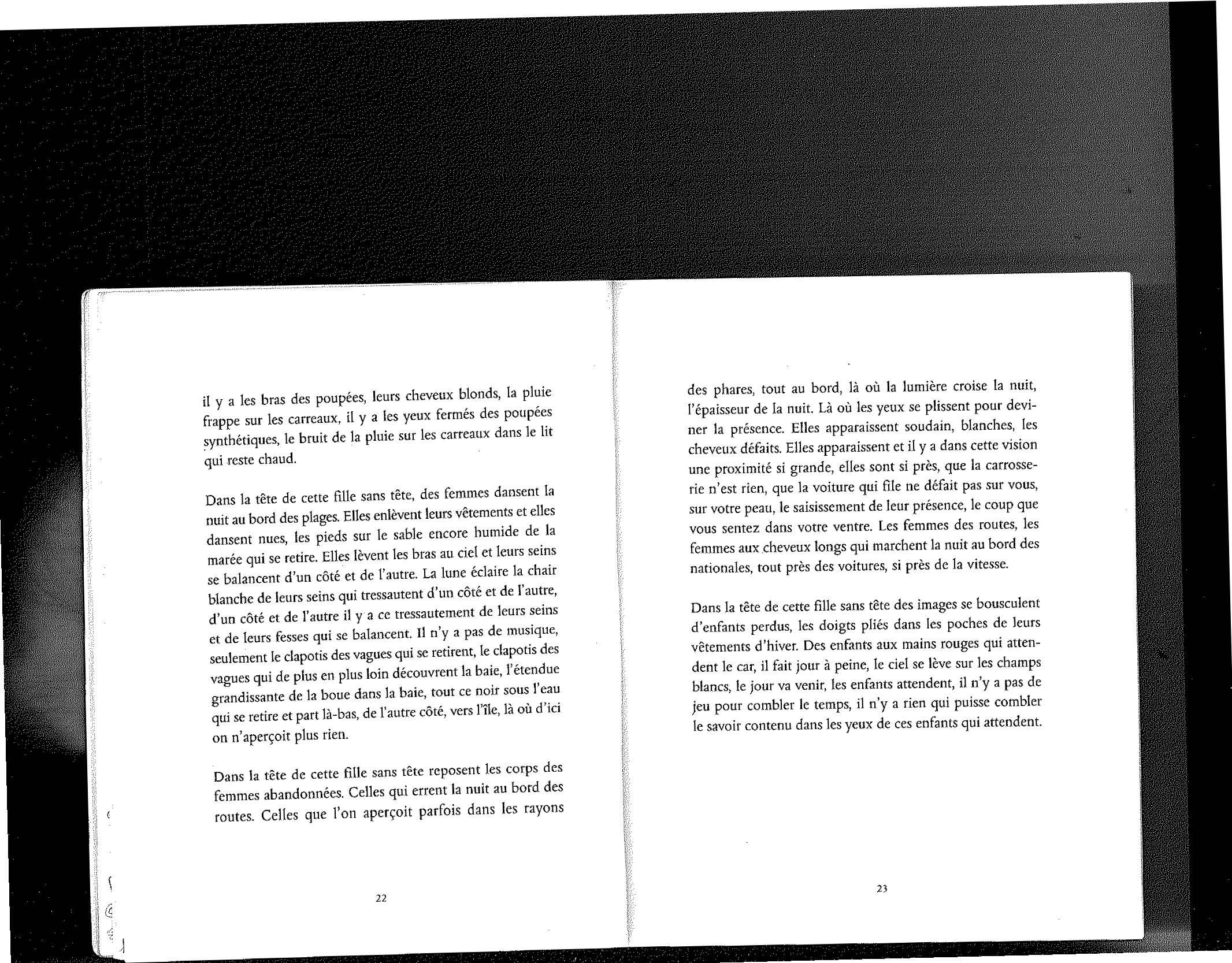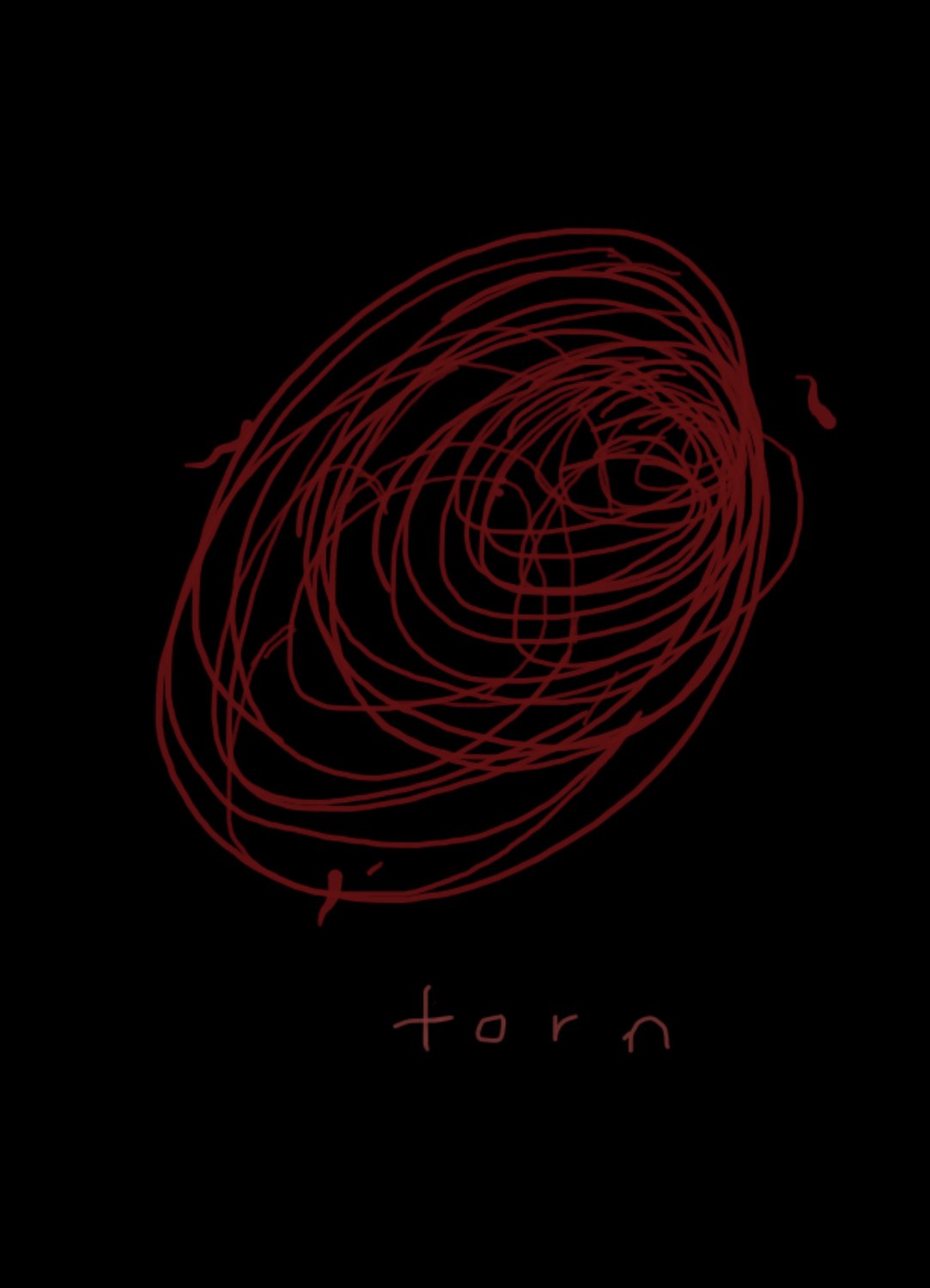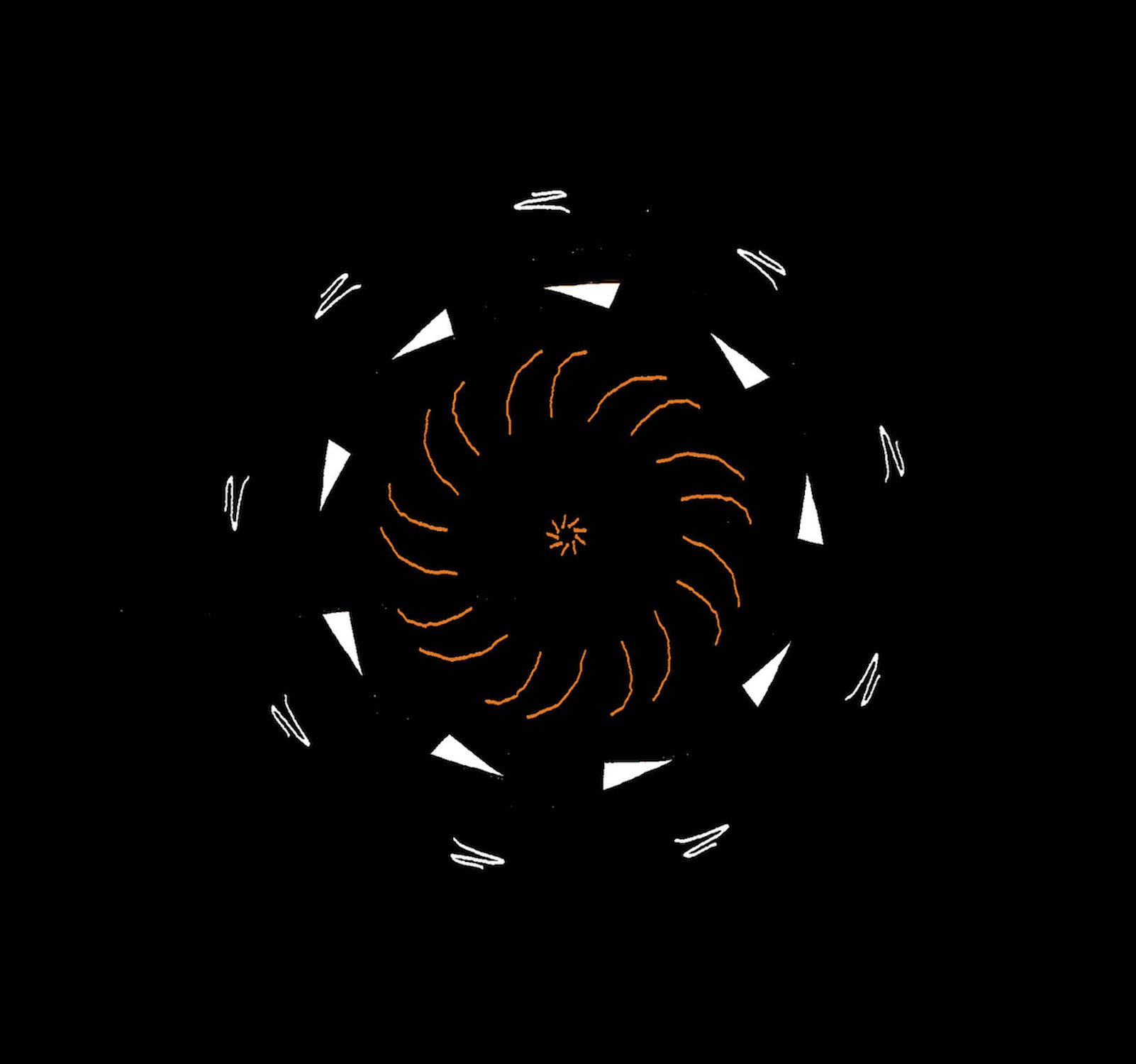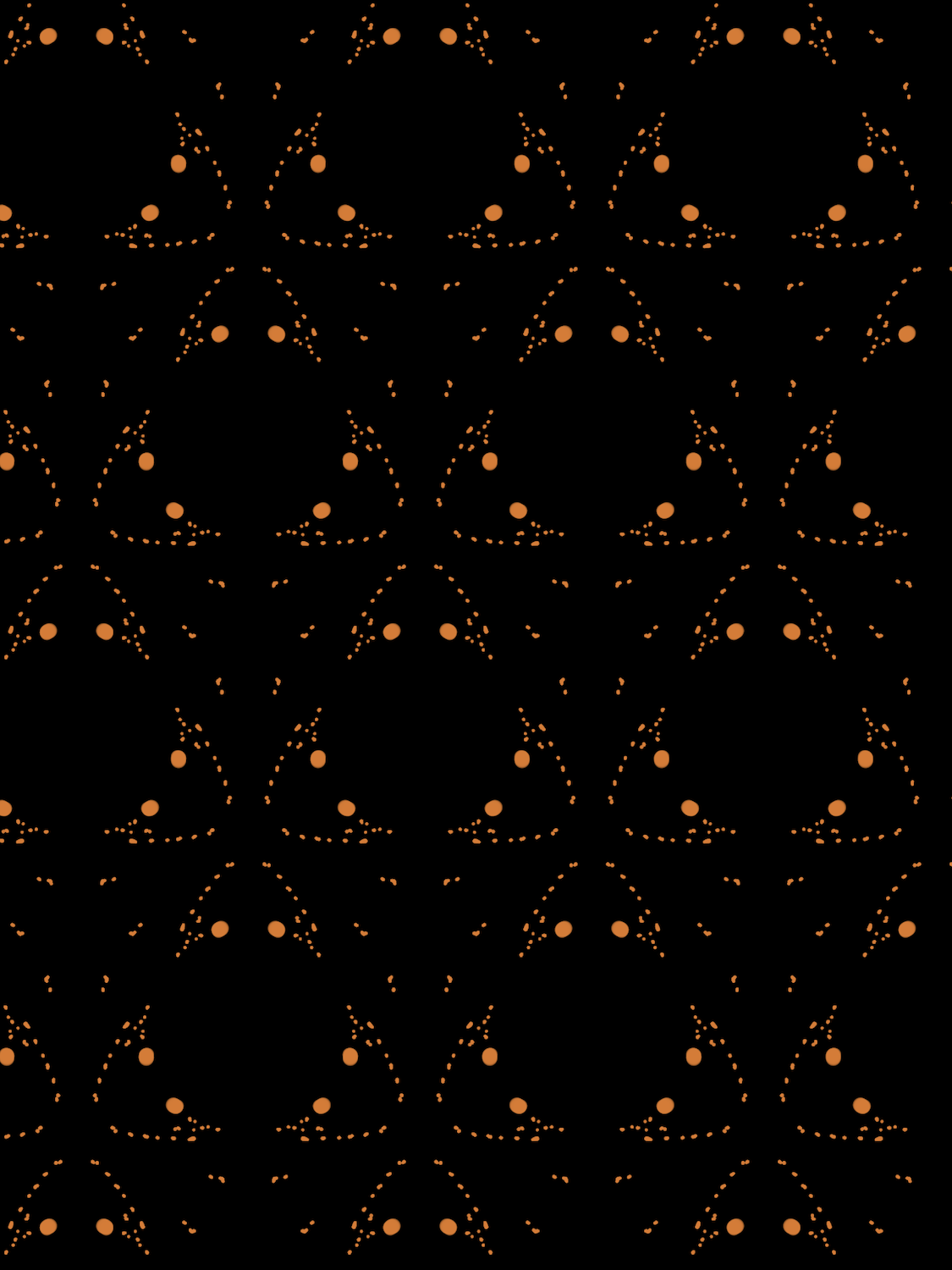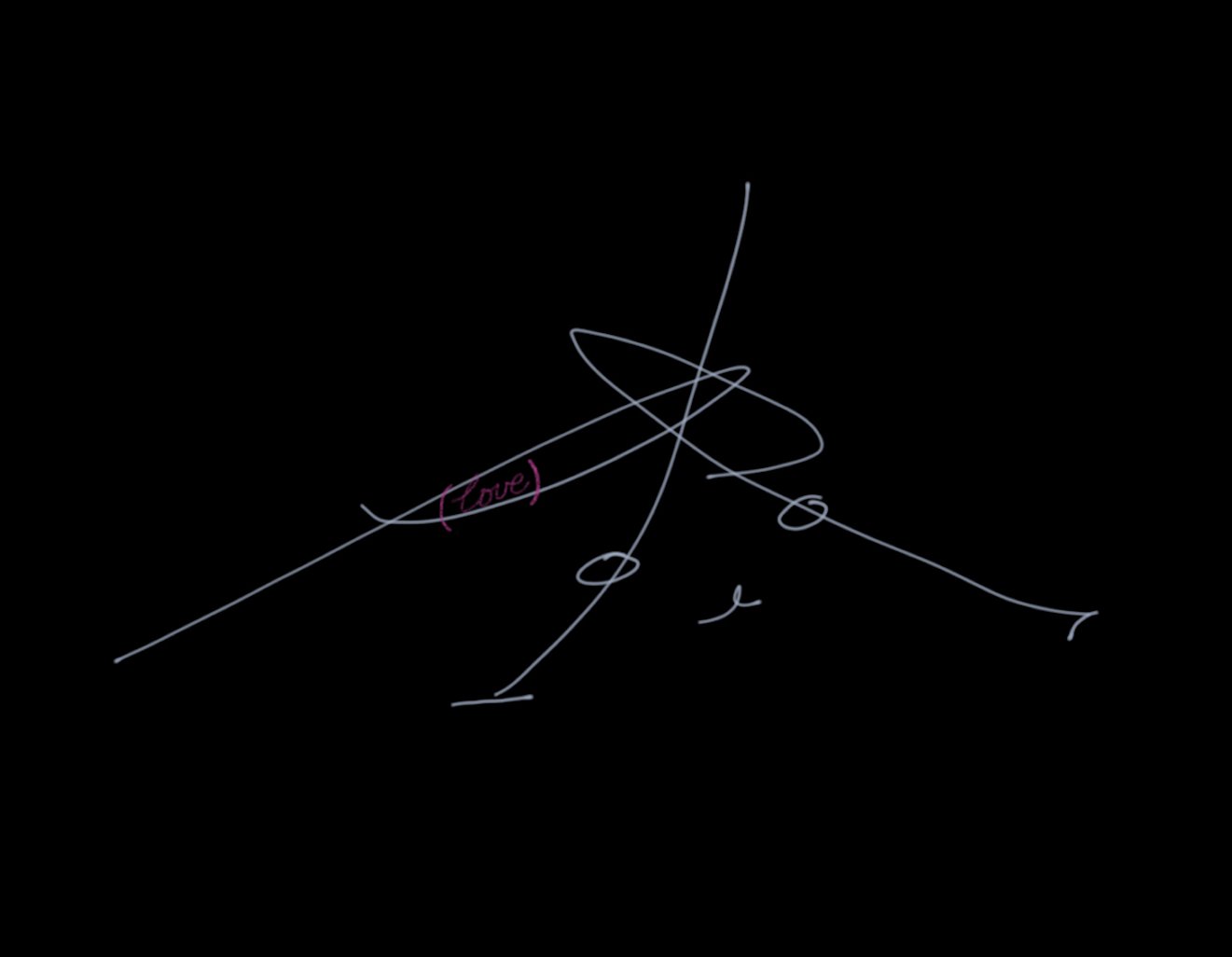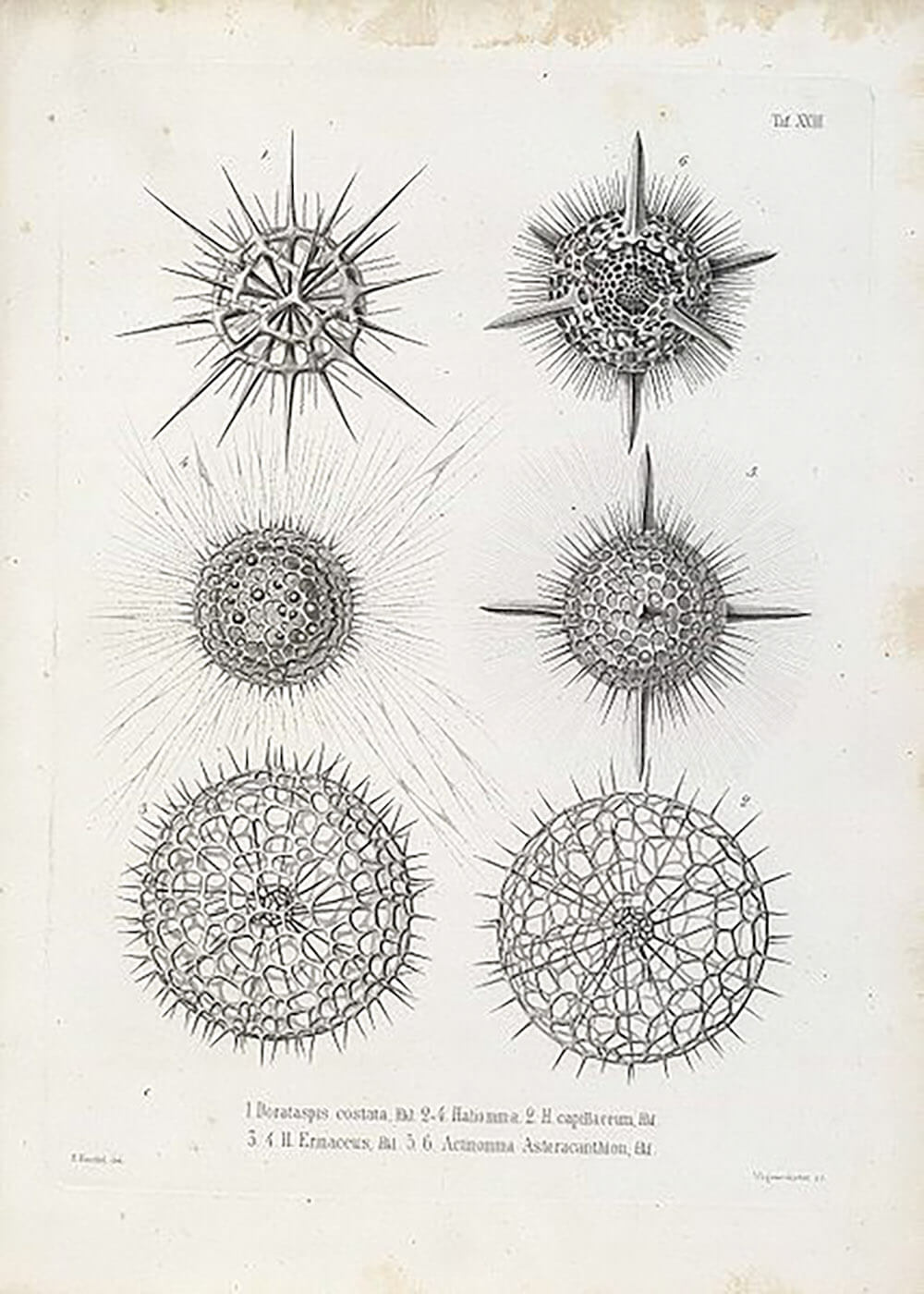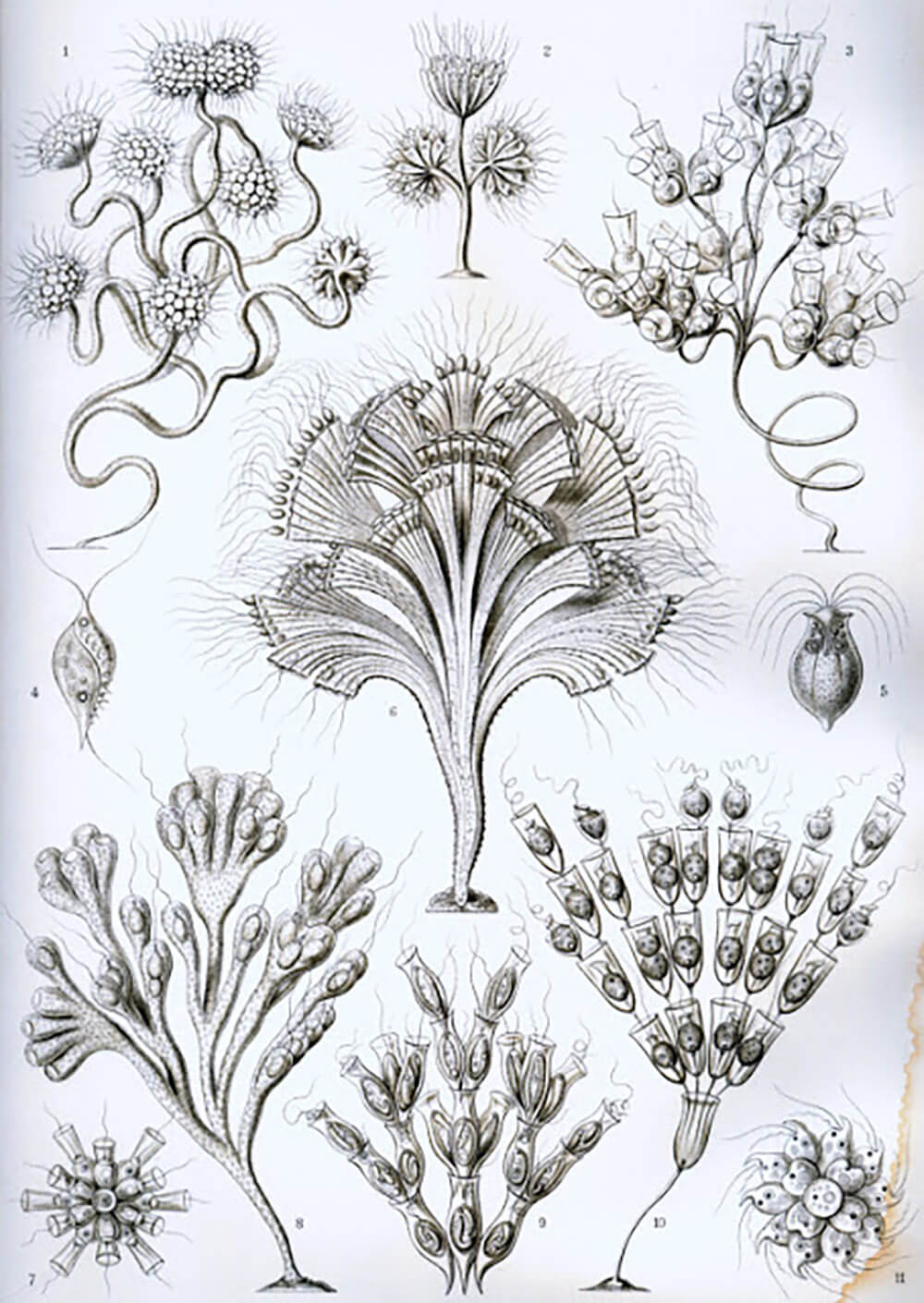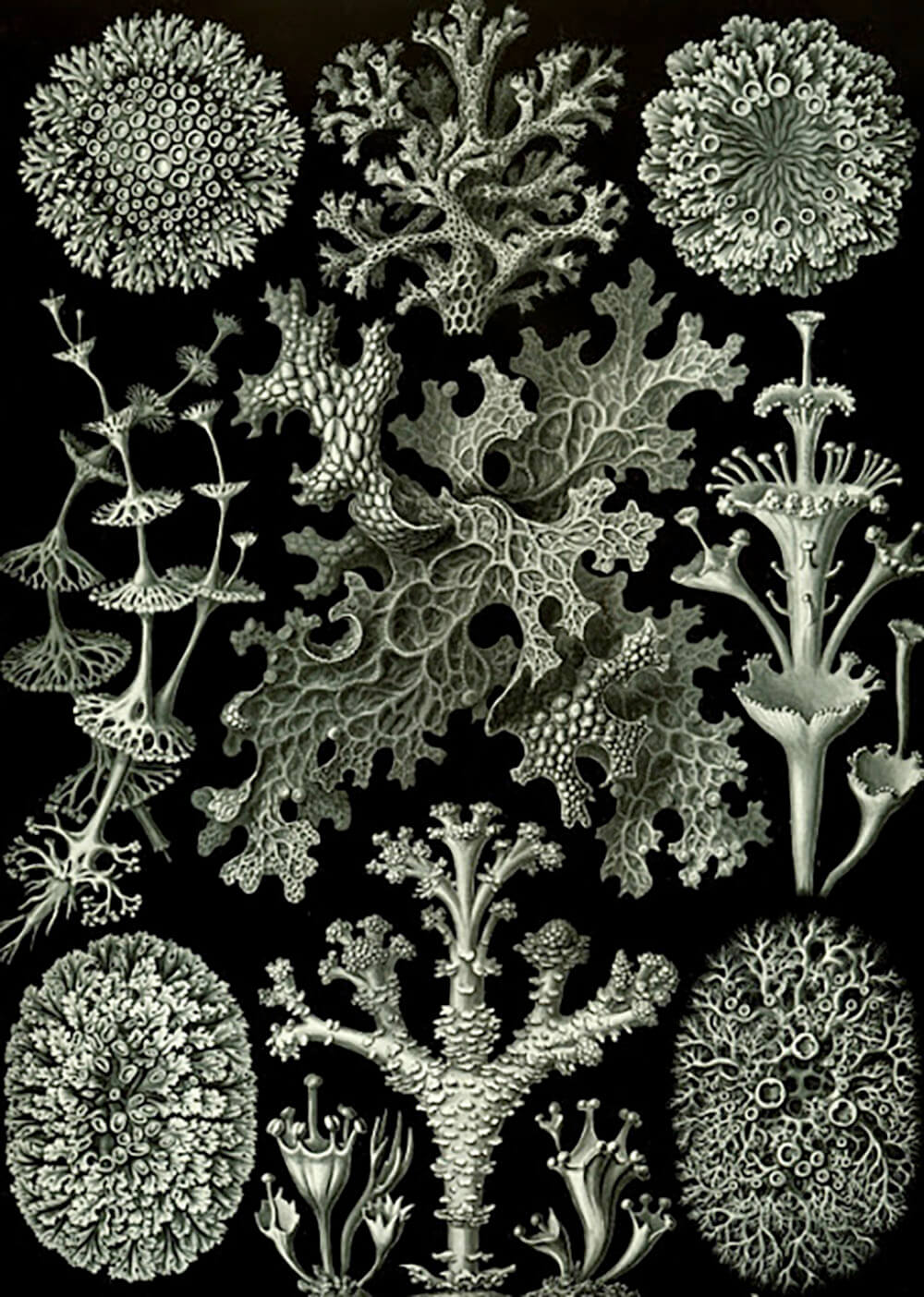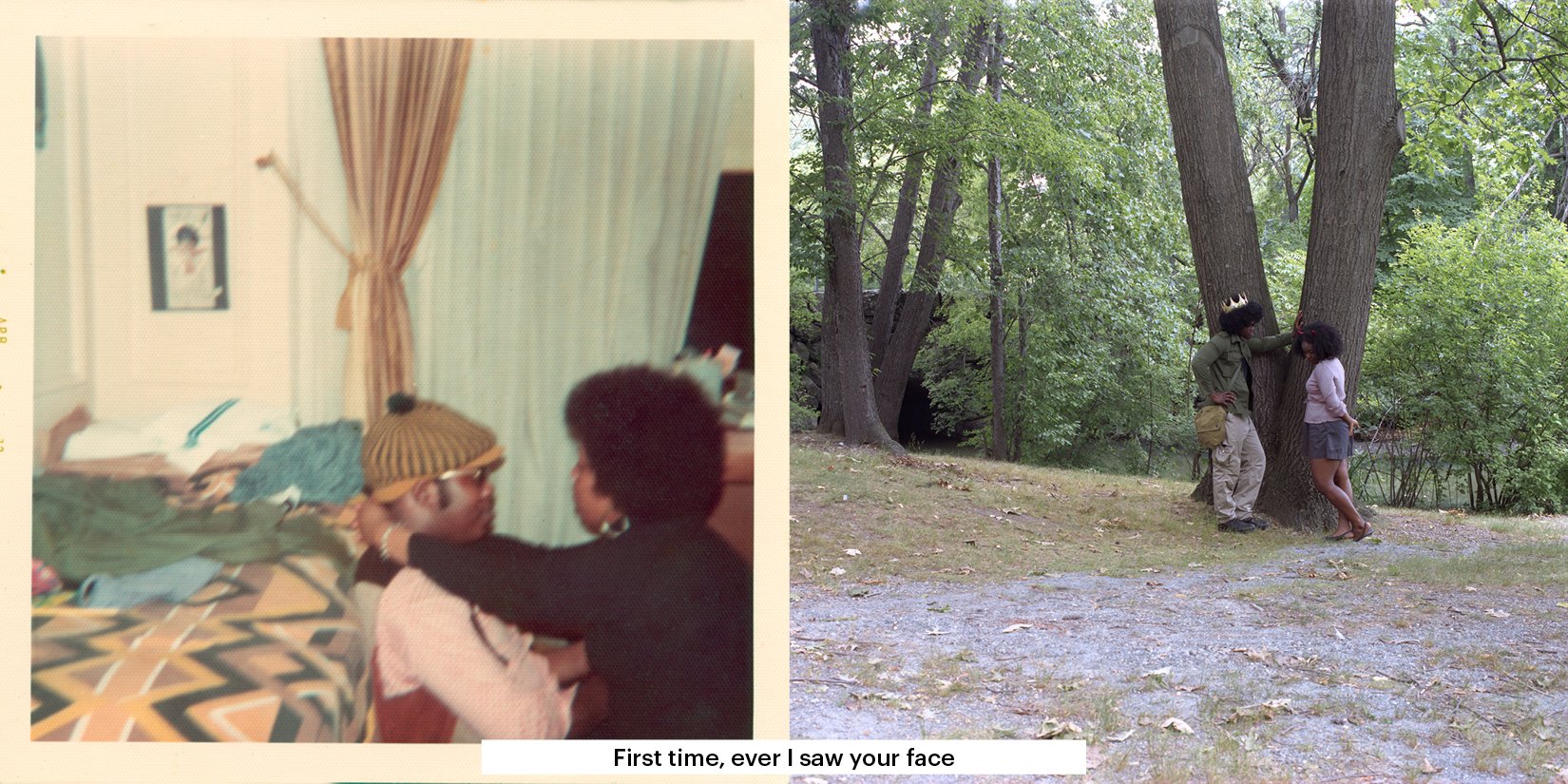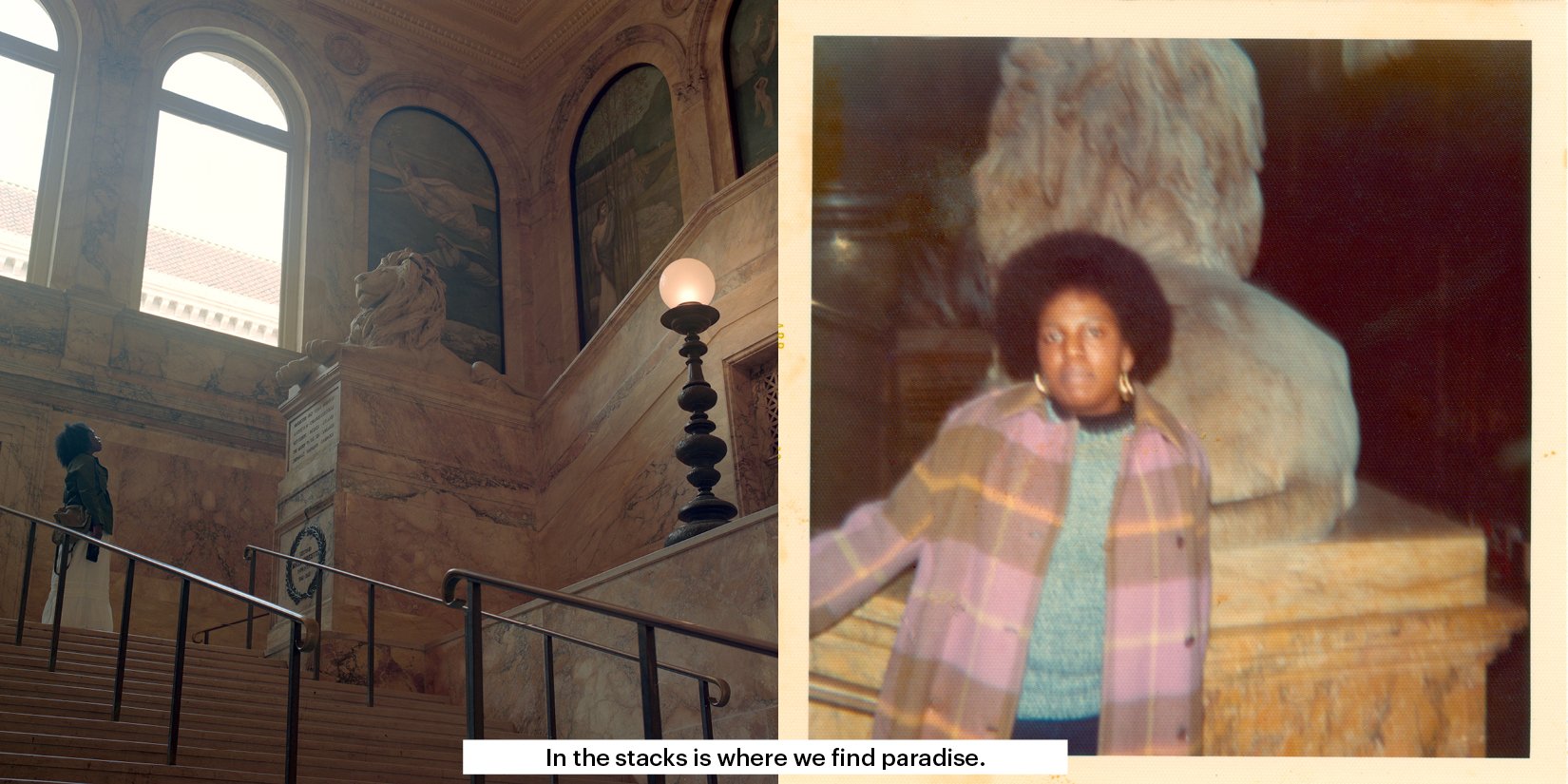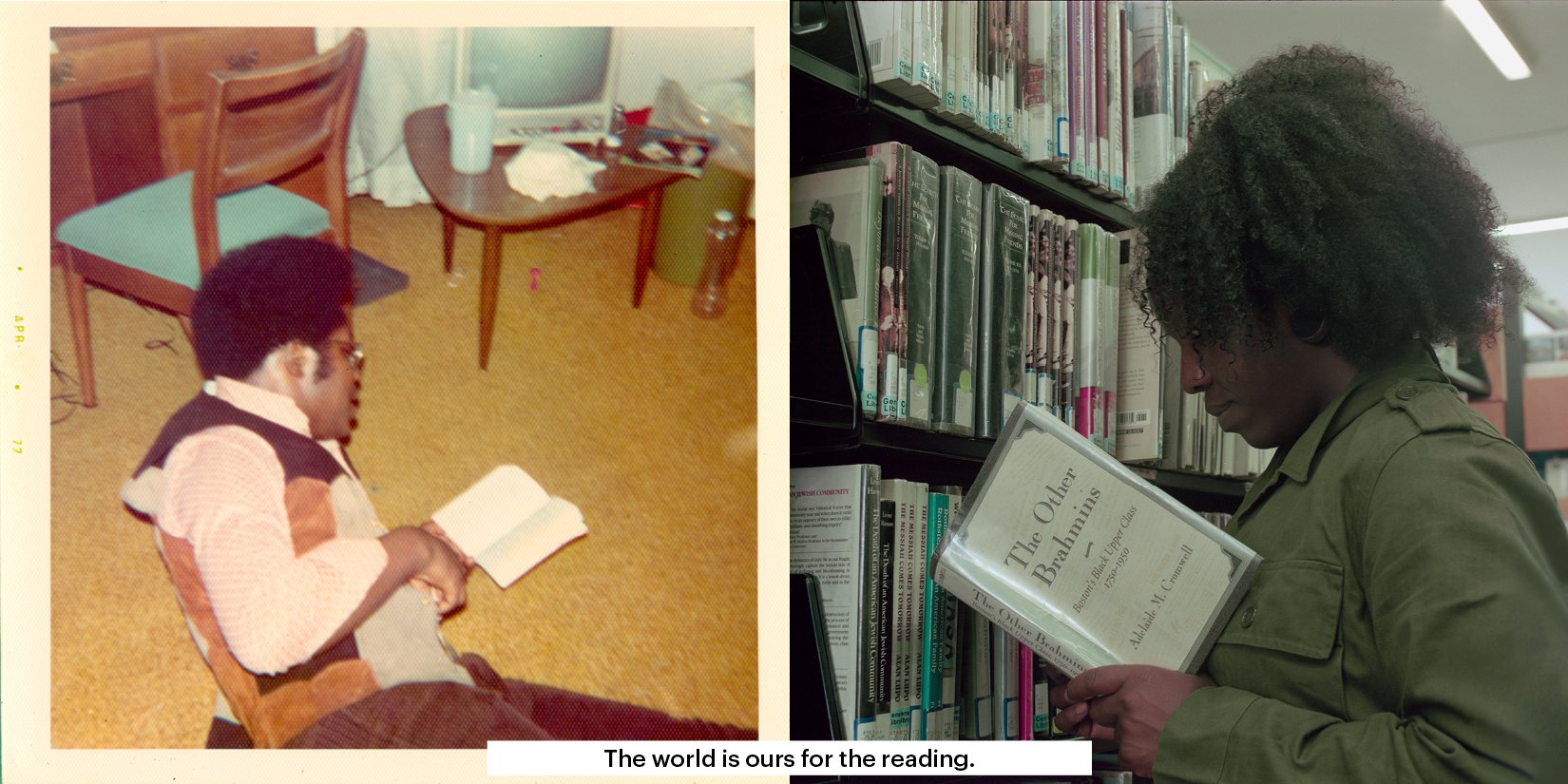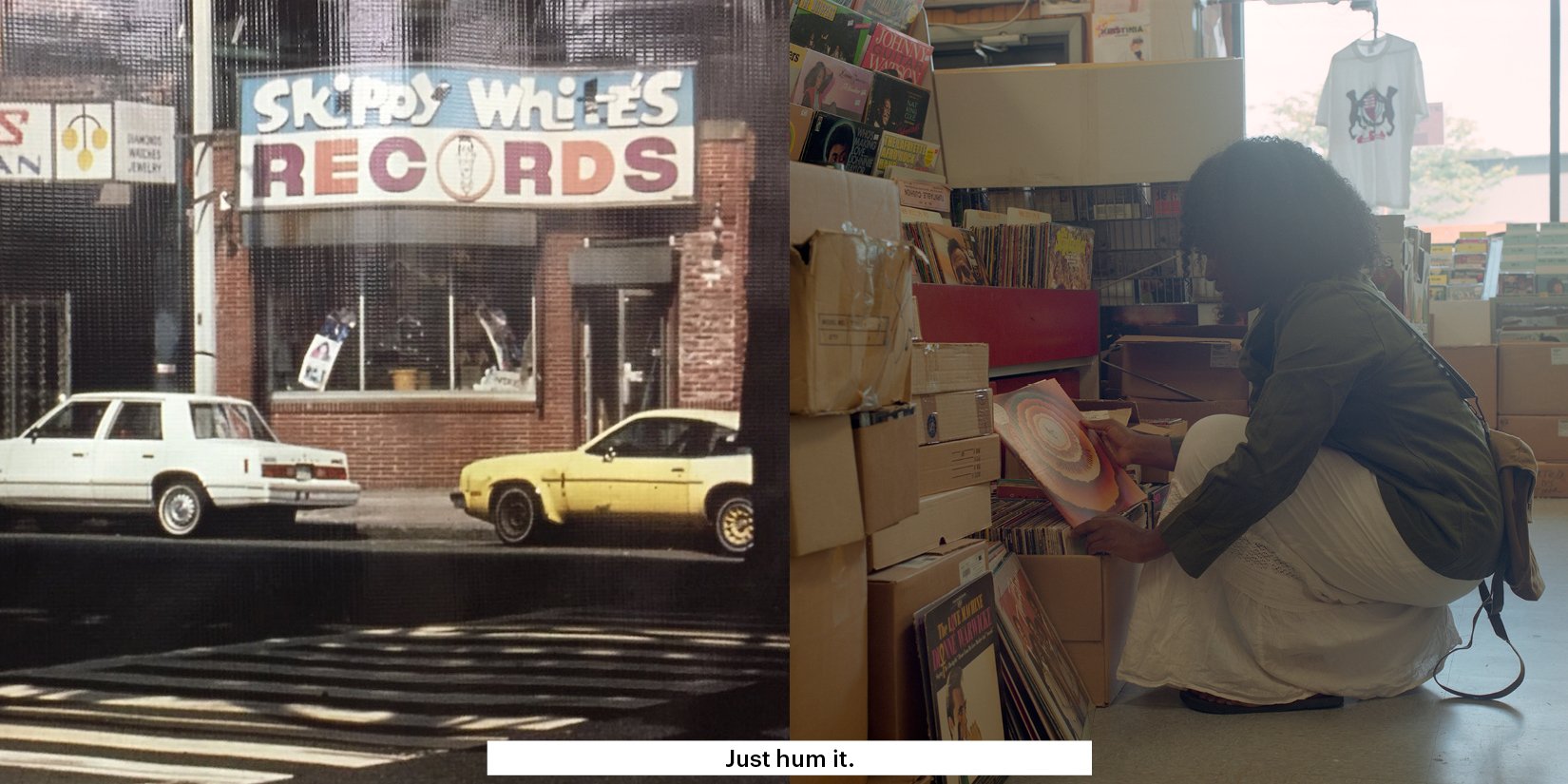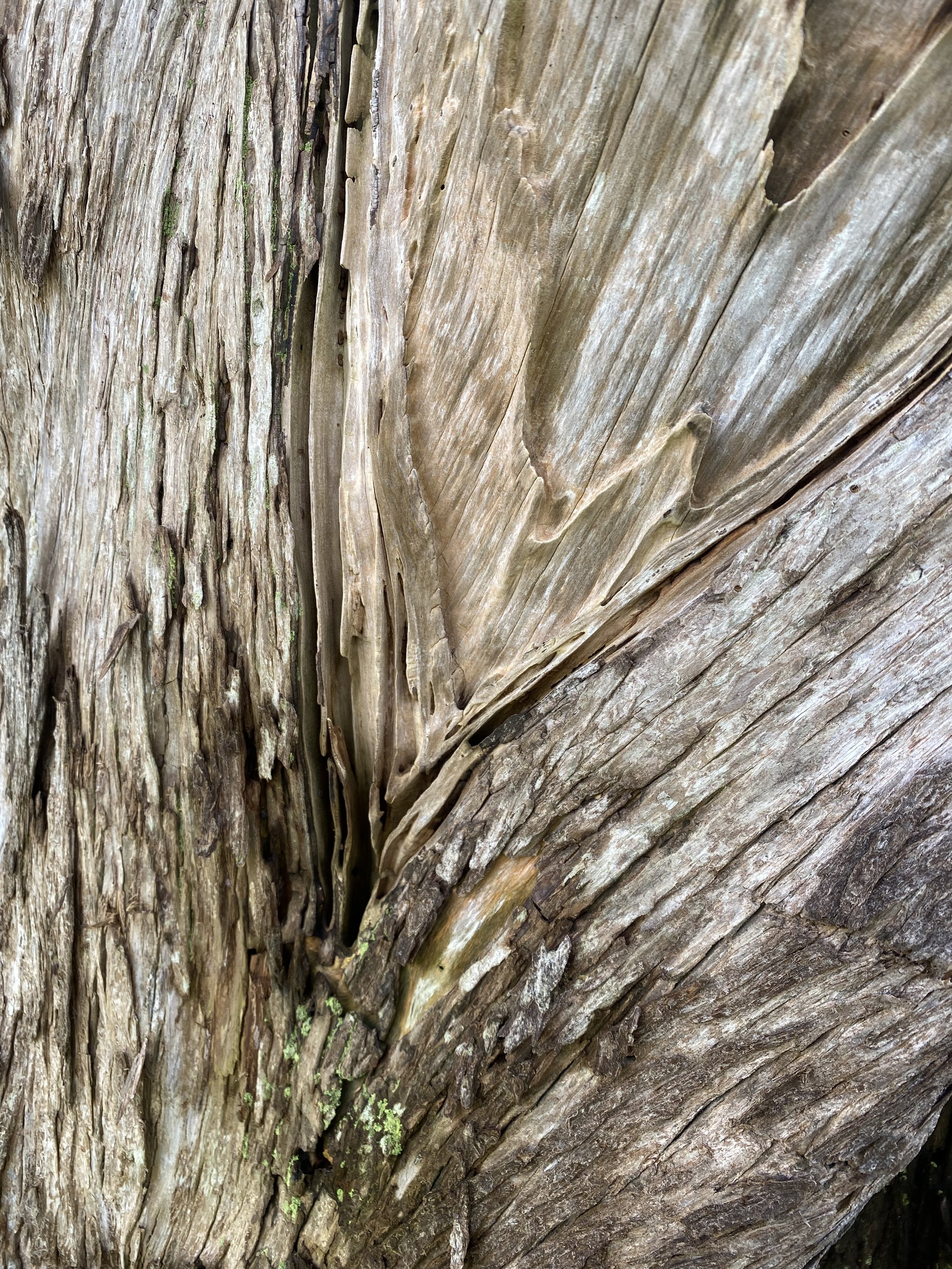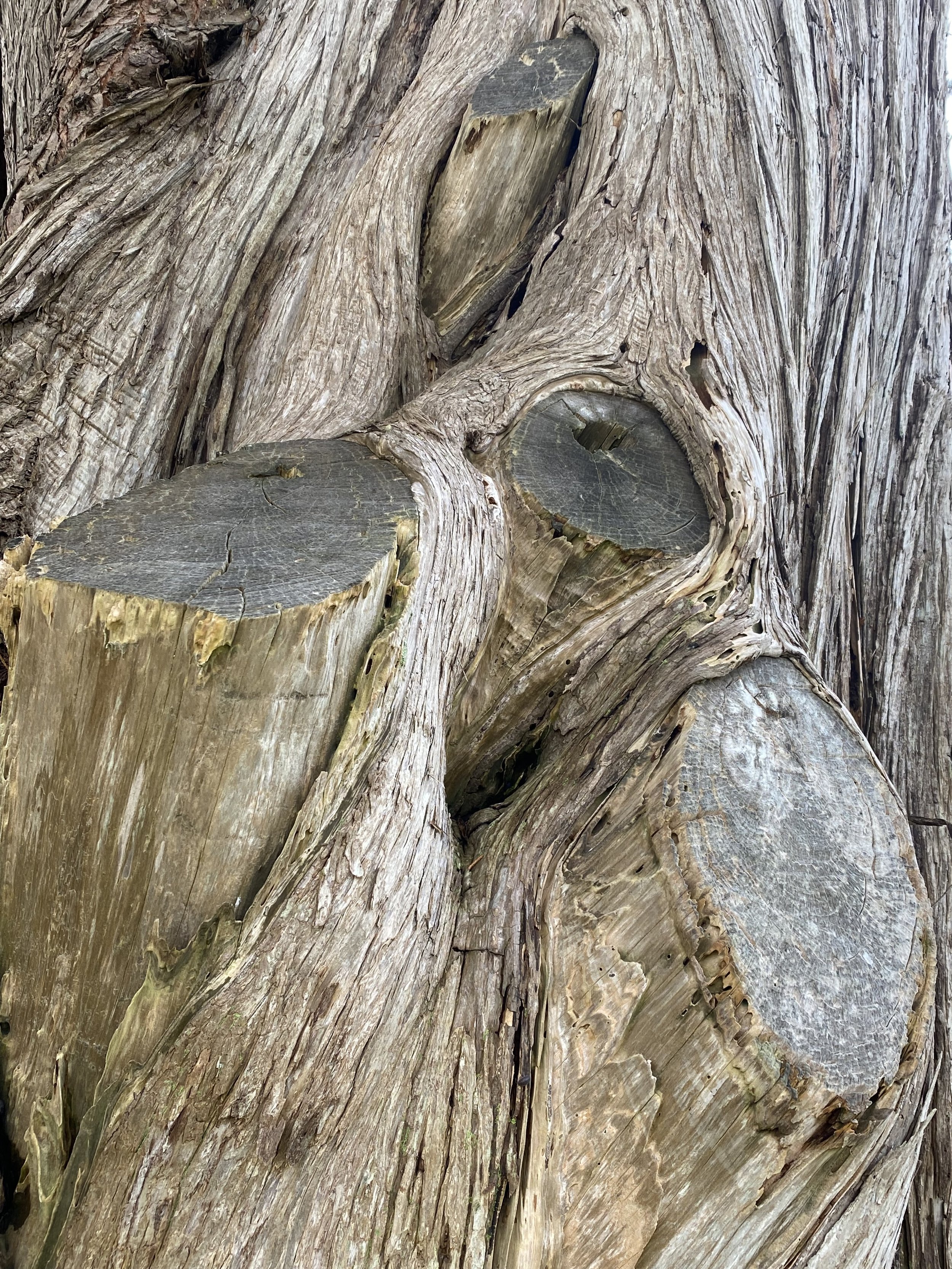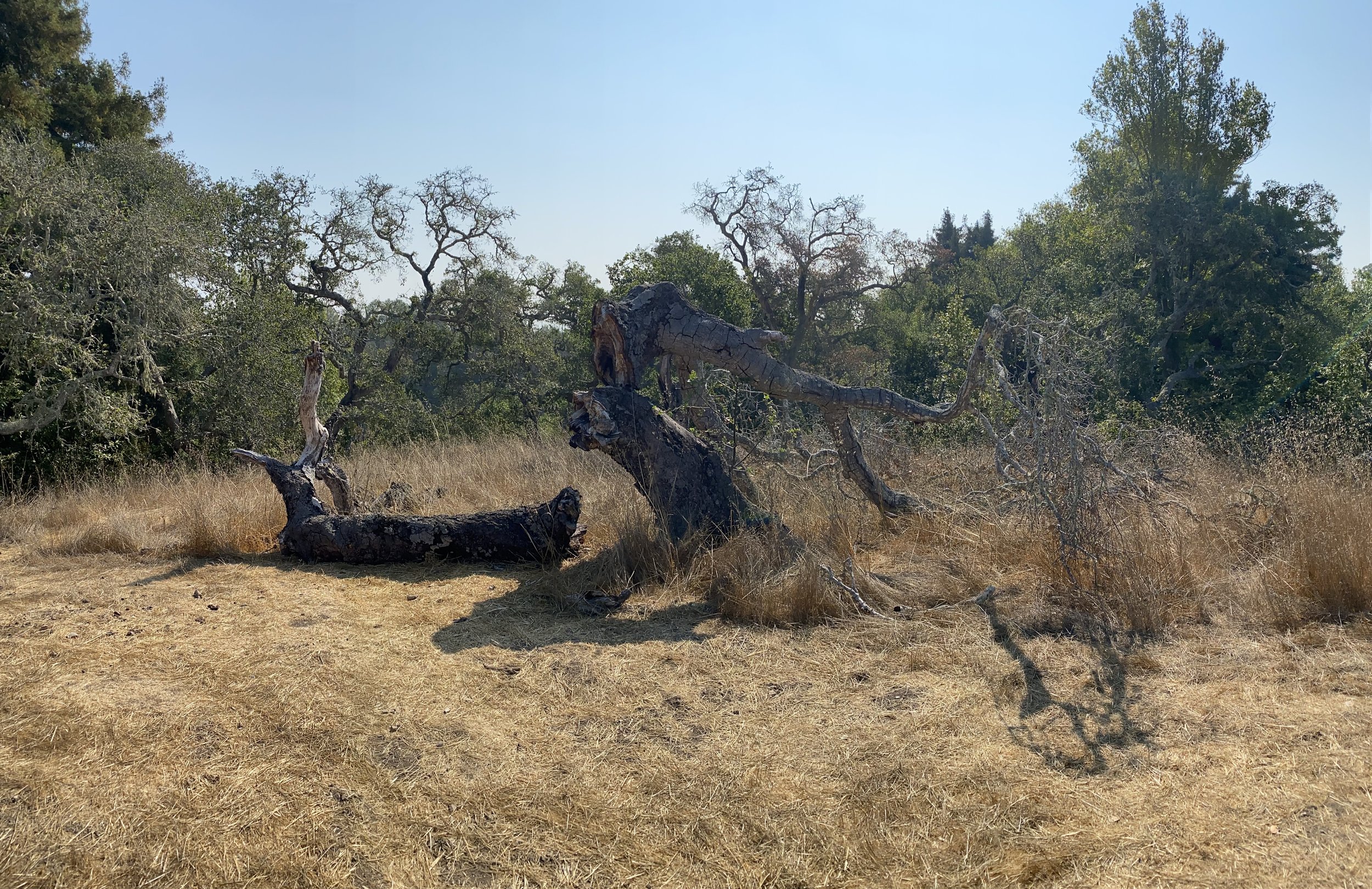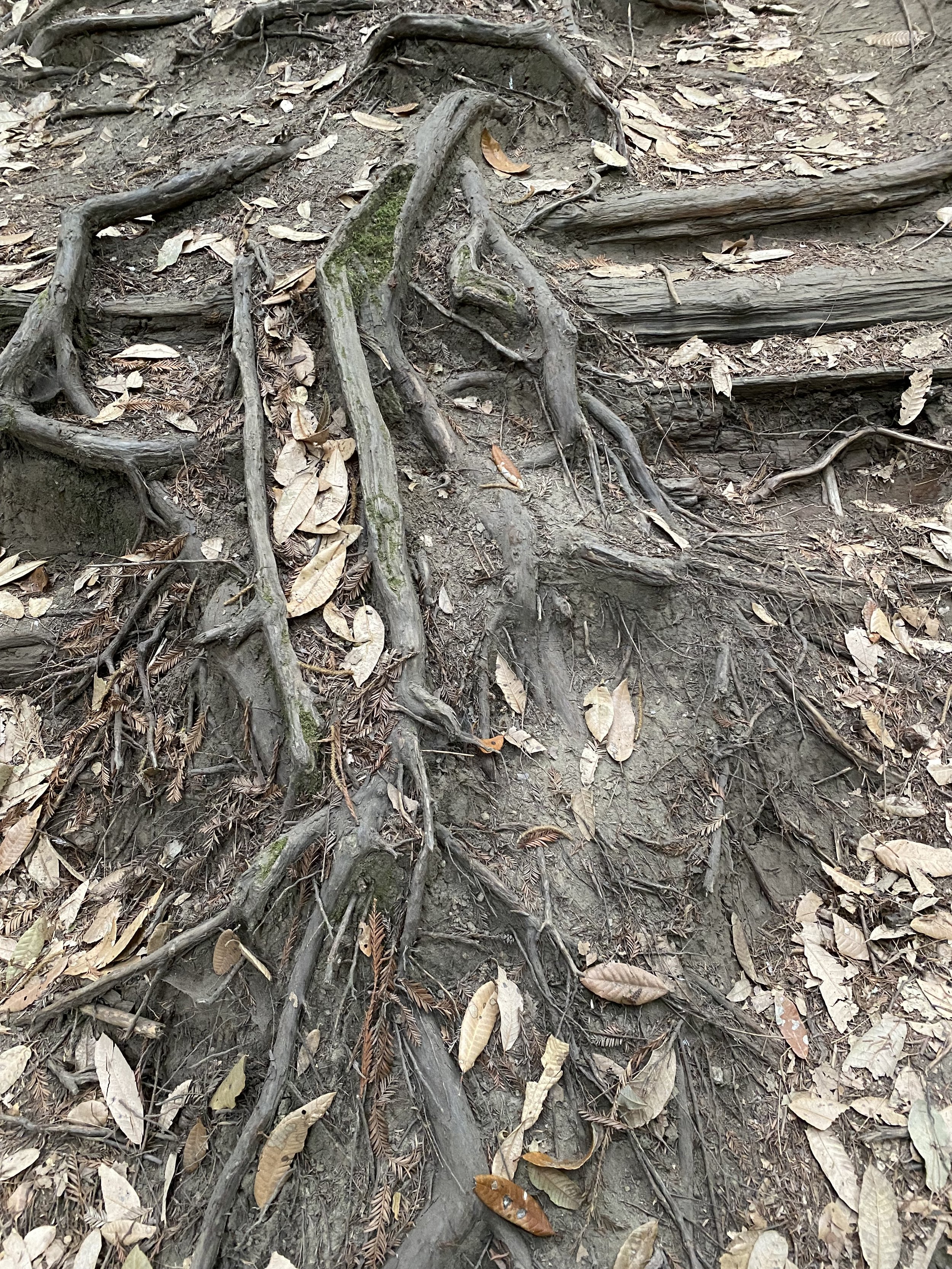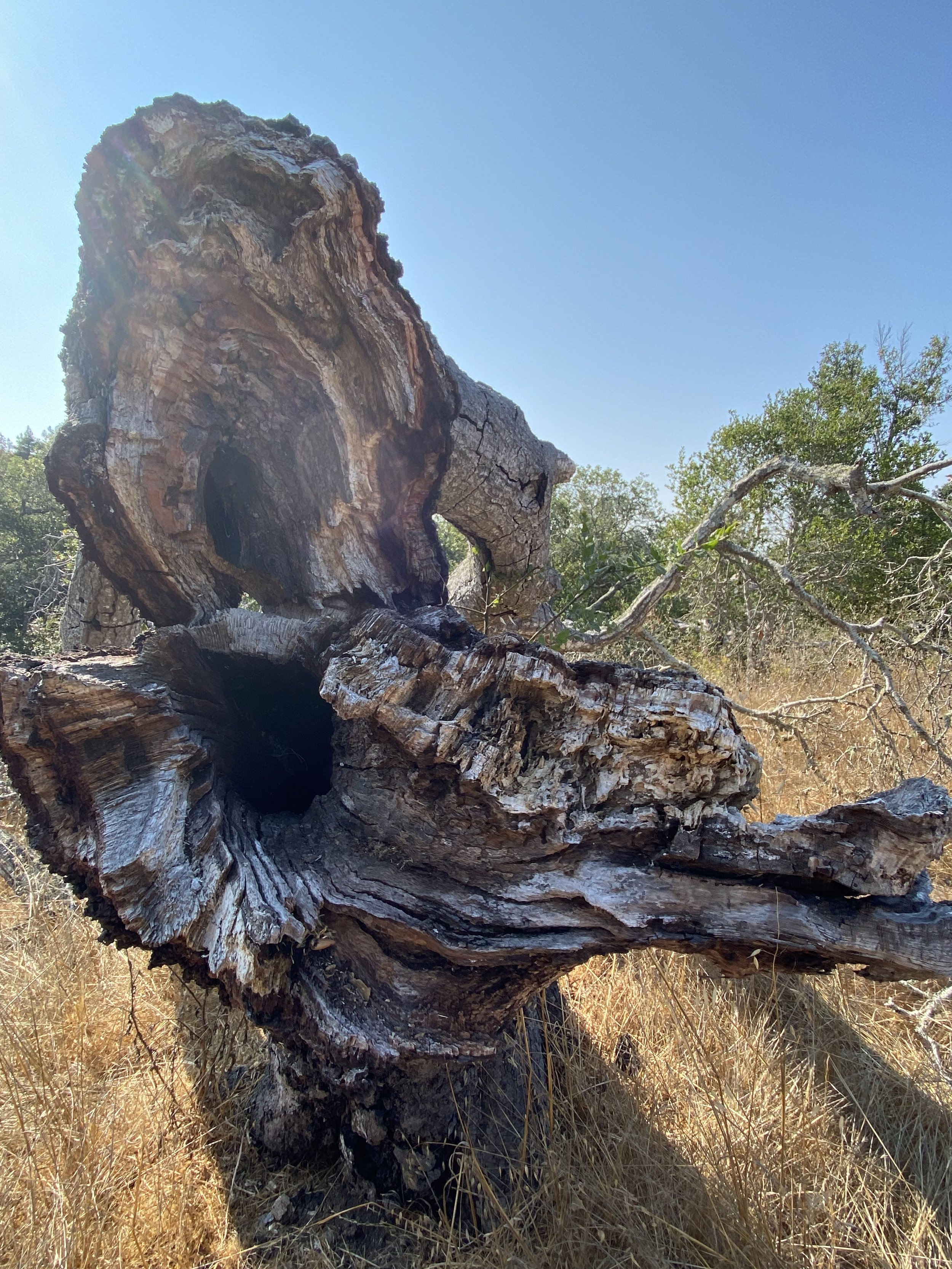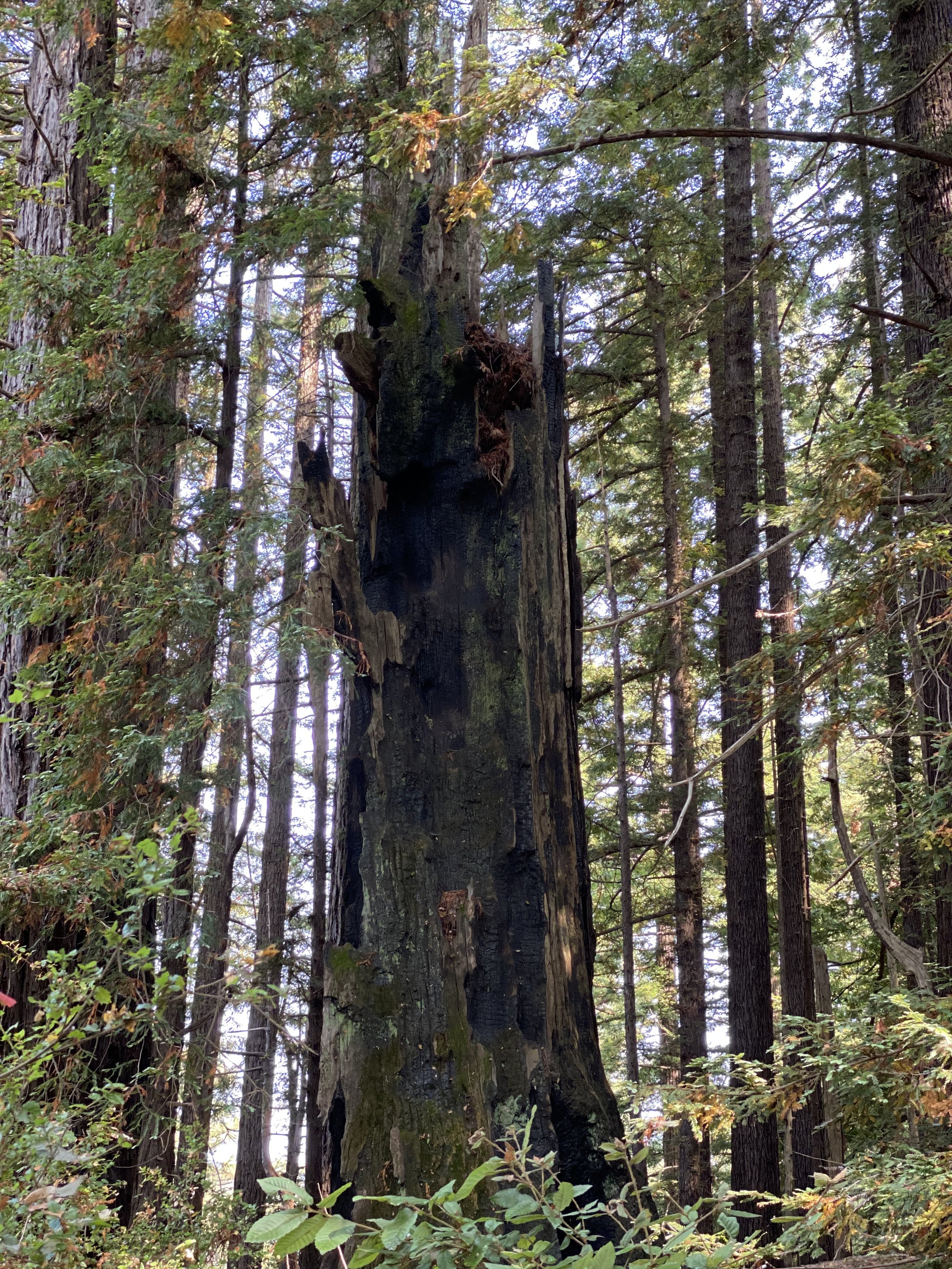This is an introduction to a live collaboration with film project that I’ve performed only once so far. I’ve been doing live presentations called “not-neo-Benshi” (the title inspired by a conversation I had with scholar/poet Dr. Chin-In Chen). This is different than some of my other durational work with film. Instead of calling this piece a poem per se, I’d describe it as an experimental script as the work is presented as the speculation of multiple characters presenting meta-performative storytelling. (Again, there are significant spoilers of the original film I’m riffing off here. So if you want to experience the film without any backstory, please read this after viewing Cronenberg’s work.)
This introduction and the performance it’s referring to, is a bit different from my writings for Stanley Kubrick’s film Eyes Wide Shut and other work I’ve done with moving images. In Black Cronenberg the Black characterizations speak outside of and within the action of the film. They sometimes “inhabit” the position of the White characters and sometimes judge them.
There are several similarities to my experiment with Kubrick in this gesture with Cronenberg. Firstly, I love both of these films. My brother and I are huge fans of A History of Violence. It’s become one of the films we quote often, randomly, to each other in great appreciation of it. It’s beautifully developed and has gorgeous, terse dialogue. I also think my brother and I quote it because in many ways, AHoV is a film about siblings: Joey and Ritchie but also the contrast and love between Sarah and Jack. On a meta-level, one could say it’s a film about embodied dualities, complementarities, balances.
I chose this film to “play with” after an opportunity arose for me to present work at the independent Filmscene cinema house in Iowa City. I’d been invited to participate in an African American focused film-series collaboration between Filmscene and Christopher Harris, Head of Film and Video Production, at the University of Iowa’s Cinematic Arts department. I had another (overly complex) project in mind and when I realized that wouldn’t be ready, decided to approach one of my favorite films.
Like Kubrick’s EWS, Cronenberg’s AHoV is notable for its absence of identifiable Black characters (except for one reporter) and the subtext of this absence allows for an intra-racial “othering” of violence vis a vis Queerness (hostility toward Jack and Ritchie) and by Irish gangsters from major cities in the Northeast.
What does it mean to think of American violence without a Black specter representing this idea as victim or victimizer? In Leland and Billy’s case, it was the mis-assumption that they were the only “monsters” who’d visit these predominantly White small towns. I mean “monsters” in the traditional sense of metaphysical beings too: I wonder if there was something in those two that drew themselves to the only person, the scarier monster, who could kill them. Leland and Billy/ Tom and Joey at the diner, after twilight revealed themselves. They were so tired of being on the road as Billy said multiple times…Each side let the right ones in.
Reviewing this film for the project, I was delighted to note that Cronenberg included several significant “tells” that there was some subtle metaphysical interference in the story, on par, say, with how MacBeth was affected by the Three Witches but did the bad deeds on his own. Before carefully looking at the film for the project, I’d seen AHoV about 10 times. It wasn’t until I decided to think about these characterizations that I noticed several aspects of the uncanny in the film. One was that the child that was killed by Billy held a doll with blonde hair that’s a very similar shade to Sarah’s. It was almost as if Sarah woke up screaming because she “was” the doll. Billy and Leland were the monsters she saw in her dream, in shadows. But the real tell was the humorous story that Mick told Pat at the diner. That note about “crazy ex-wives” foretold the entire story of Tom and Edie (without the “ex” part — because nobody’s perfect, as Mick says). Mick’s ex-wife predicted (and slightly misplaced the protagonist) through her nightmares. In this film violence is almost an entity that inhabits people and that can be perceived by sensitive people. In my projection of the story, Leland and Billy are sensitive to their surroundings in a damaged and very dangerous way, and wanted to end their time on earth. Tom and Joey merge to become their Grim Reaper. When Joey lives, like Morrison’s character Beloved, his nature infuses the town, causing more mayhem. Joey is the Berserker who also manifests in Jack — but only after Carl’s soul can rest. Like Tolkien’s Dead Men of Dumbarrow, Fogerty’s soul leaves earth after his motivation to continue has been resolved.
Jack, fascinatingly, seems quite adept and quite at home in his new status as a killer. He’s comfortable being his (new) father’s son. It is as if Jack is the synthesis of his Queer uncle and his homicidal dad, his immediate male genetic references. It seems that Cronenberg is arguing that Jack was “born this way” (Gay and a killer) and like his uncle and father, he has learned to manage these aspects of himself in ways that are productive to his happiness and to his family. (“You’re a hero, dad” he says after his father murders two exceptional murderers.)
Besides the interest in the film on its own merits, and I have many comments such as those above dispersed throughout the script, AHoV is interesting because it is absolutely predicated on the privilege of Whiteness to tell the story well. I have not read any scholarly work on the film (I usually wait until some time after these projects to read about them, including source material). It is clear to me — and I believe Cronenberg is explicitly saying — that Tom’s passing as harmless WASP allows him to exist serenely in the town as one of its “nice people” (to quote the sheriff) even after he has killed about a half-dozen people in the town’s environs and goes on to be free enough to kill about half-dozen more.
It’s also clear that the sheriff’s idea of “nice” means “White” just as it is apparent that much of his motivation to allowing Tom to remain free has to do with the sheriff’s desire for Edie and her performance of White womanhood, selectively, as the damsel in distress.
Refreshingly, Edie turns the blonde damsel idea on its head by being more proactive, confrontational and fierce than the stereotype (and she, as it is made explicitly clear, is not a natural blonde; she's “working” the trope). Edie chooses Tom and Joey, to know both of them, to be in love with both of them and to keep their family together. Furthermore she was certainly ready to become a killer herself if need be, as her holding the shotgun demonstrated. Therefore the only “actual” blonde girl/woman is Sarah, who upholds the blonde damsel assumption in the tradition of Hitchcock (down to her mid-century inspired clothing in the mall scene). Unlike the other (killed) little girl, blonde Sarah lives, becoming a lynchpin in her family’s repair.
In AHoV, the absence of Blackness and the presentation of Whiteness is highly circumscribed. It doesn’t include anyone dark, even relatively speaking those of darker Euro-American heritage. It was a lucky coincidence that Cronenberg hired Harris, Mortensen and Hurt for these roles and changed the story to one of Irish mobsters rather than Italian ones. If Tom/ Joey/Ritchie/Fogerty/any of the henchmen had an identifiably Italian last name, I can say, as a born and raised Northeasterner, and as an American in general, the unfolding of the story would’ve been too obvious. There are so many stereotypical films of Italian mobsters going back into lives of crime after trying to get out. Cronenberg’s innovation is also revealing about White ethnicities and their proximities to Blackness/non-Whiteness in the White imagination. Again I think Cronenberg is too good of a director for this meta commentary on Whiteness not to be intentional.
The constructions of race are made-up but have real and too often, dire consequences. They are also sources of pride for people both as groups with ancestries from similar regions as well as families that ascribe their familial relationships with those regions. In A History of American Violence: Black Cronenberg I’m attempting to highlight the excellent, well-crafted, clever work Cronenberg has done here. What I ultimately get from his film, and what I hope to sufficiently share in my performance, is that violence is present even in “nice” places that strive to keep other people, non-White people, (whom they think are dangerous) out. I think Cronenberg is also saying something else: that if the White people who are violent are enough like the people around them, those “nice” people can stay around, their neighbors perfectly happy to have killers in their midst. All of them, as fitting jigsaw pieces, generate a pastoral scene of Real Americana.
© Tracie Morris 2021
— excerpt from the forthcoming book handholding 5 kinds: on the other hand by Tracie Morris, Kore Press, 2022


